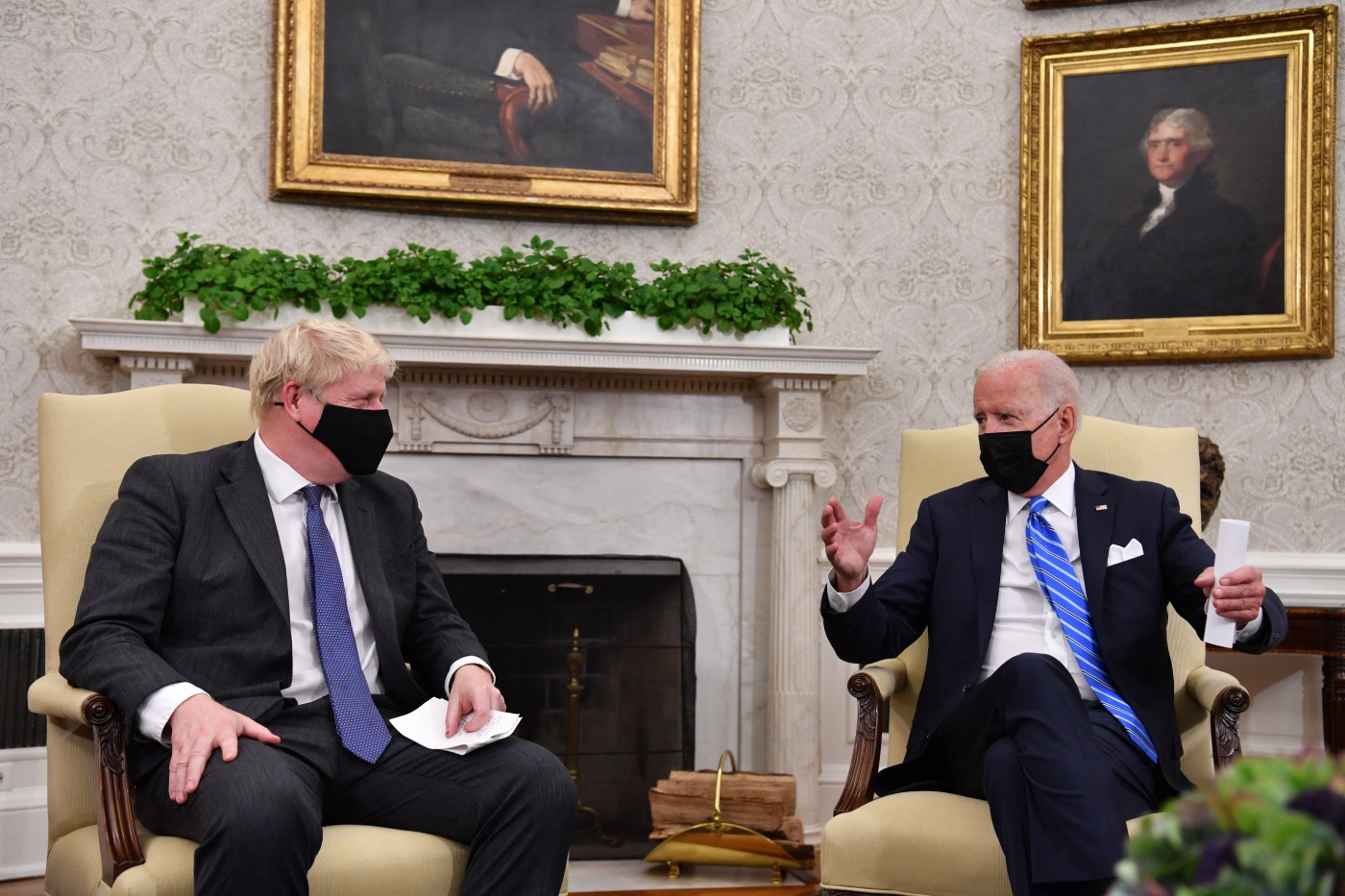Hopes fade for UK-US trade deal: what’s the alternative?
London eyeing US-Mexico-Canada pact but economists say benefits of joining would be extremely limited

A free daily email with the biggest news stories of the day – and the best features from TheWeek.com
You are now subscribed
Your newsletter sign-up was successful
Four years after Boris Johnson promised that the UK would be “first in line” for a post-Brexit trade deal with the US, hopes of such an agreement being reached are being played down by both London and Washington.
Asked about the possibility of a UK-US free trade agreement ahead of private talks with Johnson yesterday at the White House, Joe Biden said: “We're going to talk about trade a little bit today and we’re gonna have to work that through.”
Johnson also dampened expectations, telling reporters that “the reality is that Joe has a lot of fish to fry”.
The Week
Escape your echo chamber. Get the facts behind the news, plus analysis from multiple perspectives.

Sign up for The Week's Free Newsletters
From our morning news briefing to a weekly Good News Newsletter, get the best of The Week delivered directly to your inbox.
From our morning news briefing to a weekly Good News Newsletter, get the best of The Week delivered directly to your inbox.
The prime minister refused to speculate whether such an agreement could be reached by the 2024 general election. And according to The Telegraph, “UK government figures have given up hope of striking a deal next year”.
“The development is a stark admission of a changed trade strategy,” the newspaper continued. In the years since the 2016 Brexit vote, a UK-US trade deal has been “a key foreign policy goal” for London, but “government officials are now looking at other ways to boost Transatlantic trade”.
One option would be joining the US-Mexico-Canada trade deal (USMCA), a low-tariff pact negotiated by then president Donald Trump that came into effect in July last year.
The pact was a revamp of the North America Free Trade Agreement, which Trump had criticised. The USMCA updated old agreements relating to issues including intellectual property and digital trade, and will expire in 2036.
A free daily email with the biggest news stories of the day – and the best features from TheWeek.com
A senior government figure told The Times that “there are a variety of different ways” that the UK could try to get in on the deal.
“The question is whether the US administration is ready,” the unnamed source added. “The ball is in the US’s court. It takes two to tango.”
Joining the deal would mark a realignment of British trade away from Europe and across the Atlantic.
However, the BBC’s global trade correspondent Dharshini David warned that the pact has “limited coverage of the UK's biggest strength when it comes to selling to America, namely services”. The overall gains “may be very limited, perhaps less than 0.1% of GDP”, she wrote.
According to The Times, Downing Street is also believed to be “examining whether it could deepen trade with the US via the Comprehensive and Progressive Agreement for Trans-Pacific Partnership (CPTPP)” - a trade deal with 11 signatories including Canada, Mexico, Japan, Australia and Singapore.
Britain applied to join the pact in February, and “the US has recently indicated it is considering joining” too, said the paper.
Another option reportedly being considered by London is to pursue a series of smaller UK-US deals on separate issues, such as aligning data and digital standards.
-
 Antonia Romeo and Whitehall’s women problem
Antonia Romeo and Whitehall’s women problemThe Explainer Before her appointment as cabinet secretary, commentators said hostile briefings and vetting concerns were evidence of ‘sexist, misogynistic culture’ in No. 10
-
 Local elections 2026: where are they and who is expected to win?
Local elections 2026: where are they and who is expected to win?The Explainer Labour is braced for heavy losses and U-turn on postponing some council elections hasn’t helped the party’s prospects
-
 6 of the world’s most accessible destinations
6 of the world’s most accessible destinationsThe Week Recommends Experience all of Berlin, Singapore and Sydney
-
 Is the US in a hiring recession?
Is the US in a hiring recession?Today's Big Question The economy is growing. Job openings are not.
-
 Will Trump’s 10% credit card rate limit actually help consumers?
Will Trump’s 10% credit card rate limit actually help consumers?Today's Big Question Banks say they would pull back on credit
-
 What will the US economy look like in 2026?
What will the US economy look like in 2026?Today’s Big Question Wall Street is bullish, but uncertain
-
 How will China’s $1 trillion trade surplus change the world economy?
How will China’s $1 trillion trade surplus change the world economy?Today’s Big Question Europe may impose its own tariffs
-
 Who will be the next Fed chair?
Who will be the next Fed chair?Today's Big Question Kevin Hassett appears to be Trump’s pick
-
 Would a 50-year mortgage make home ownership attainable?
Would a 50-year mortgage make home ownership attainable?Today's Big Question Trump critics say the proposal is bad policy
-
 How could worsening consumer sentiment affect the economy?
How could worsening consumer sentiment affect the economy?Today’s Big Question Sentiment dropped this month to a near-record low
-
 Why has America’s economy gone K-shaped?
Why has America’s economy gone K-shaped?Today's Big Question The rich are doing well. Everybody else is scrimping.